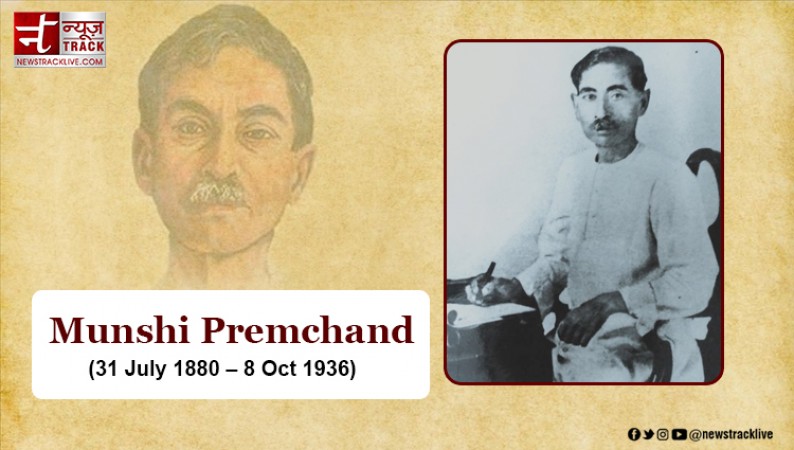
On October 8, 2023, literary enthusiasts around the world will come together to commemorate the 84th death anniversary of Munshi Premchand, a towering figure in Hindi-Urdu literature. Born as Dhanpat Rai on July 31, 1880, in the quaint village of Lamhi, Varanasi, Munshi Premchand's journey from a humble beginning to becoming the "Upanyas Samrat" (the emperor among novel writers) is nothing short of remarkable.
Premchand's early life was marked by hardship and perseverance. Following his parents' untimely demise, he shouldered the responsibility of caring for his stepmother and step-siblings. Facing financial constraints, he took up a teaching position in Chunar, near Varanasi. Despite the challenges, he continued his education and eventually completed his Bachelor of Arts degree while working as a teacher.
In a pivotal moment in his life, Munshi Premchand heeded Mahatma Gandhi's call to resign from government jobs. This decision was a turning point that propelled him into a career dedicated to the cause of Indian independence. He tried his hand at journalism, contributing to Urdu dailies like Gorakhpur Tehkik and Swadesh, but his passion for writing ultimately led him back to the teaching profession and later to editing the magazine "Maryada." He even served as a school principal in Varanasi.
Initially writing under the pseudonym "Nawab Rai," Premchand's early works were primarily in Urdu. However, his commitment to inspiring Indians to strive for freedom led to the banning of his short story collection, "Soz A Watan." Faced with adversity, he adopted the pseudonym "Premchand" and began writing in Hindi, a decision that would leave an indelible mark on Indian literature.
Throughout his illustrious career, Munshi Premchand explored various avenues of literary expression. He ventured into running a printing press, took on the role of editor for journals like "Madhuri," and launched two weeklies, "Hans" and "Jagran." Although some of these ventures left him in financial distress, his passion for storytelling remained unwavering. He even ventured into scriptwriting for films, leaving behind a rich legacy of cinematic contributions.
Premchand's literary works are characterized by a deep sense of realism, portraying the struggles of the urban middle class and the marginalized sections of society. His rationalistic outlook exposed how religious values were often exploited by the powerful to oppress the weak. Writing in both Hindi and Urdu allowed him to reach a wide audience, transcending religious and cultural boundaries.
Notably, Premchand is hailed as the pioneer of Urdu short stories. His Afsanas, like "Qaatil Ki Maan," "Zewar Ka Dibba," "Gilli Danda," "Eidgaah," "Namak Ka Daroga," and "Kafan," offered a mirror to society, blending satire and humor to address pertinent issues. His collected stories, compiled in titles such as "Prem Pachisi," "Prem Battisi," "Wardaat," and "Zaad-e-Raah," continue to captivate readers.
In the 1920s, inspired by Mahatma Gandhi's Non-Cooperation Movement and the fervor for social reform, Premchand tackled pressing issues in his writings. He explored themes like poverty, the exploitative zamindari system (in "Premashram"), the dowry system (in "Nirmala"), educational reform, and political oppression (in "Karmabhumi").
Towards the end of his life, Munshi Premchand delved into the portrayal of village life, exemplified by his masterpieces "Godan" (The Gift of a Cow) and the short story collection "Kafan" (Shroud). He firmly believed that social realism was the most potent tool for Hindi literature's progress.
As we commemorate the 84th death anniversary of this literary luminary, Munshi Premchand's works continue to resonate with readers, offering insights into the human condition and society's challenges. His legacy endures as an inspiration for writers and a testament to the power of literature to evoke social, political, and national consciousness. On October 8, let us remember and celebrate the enduring contributions of Munshi Premchand to the world of literature.